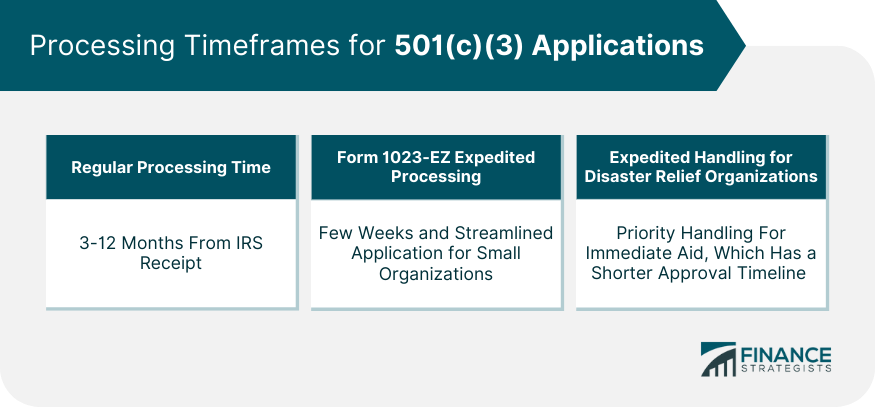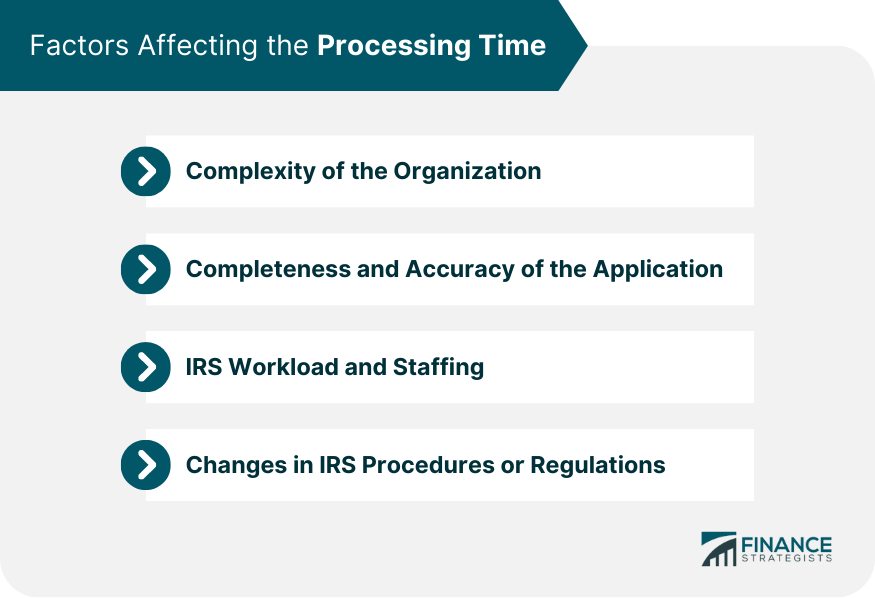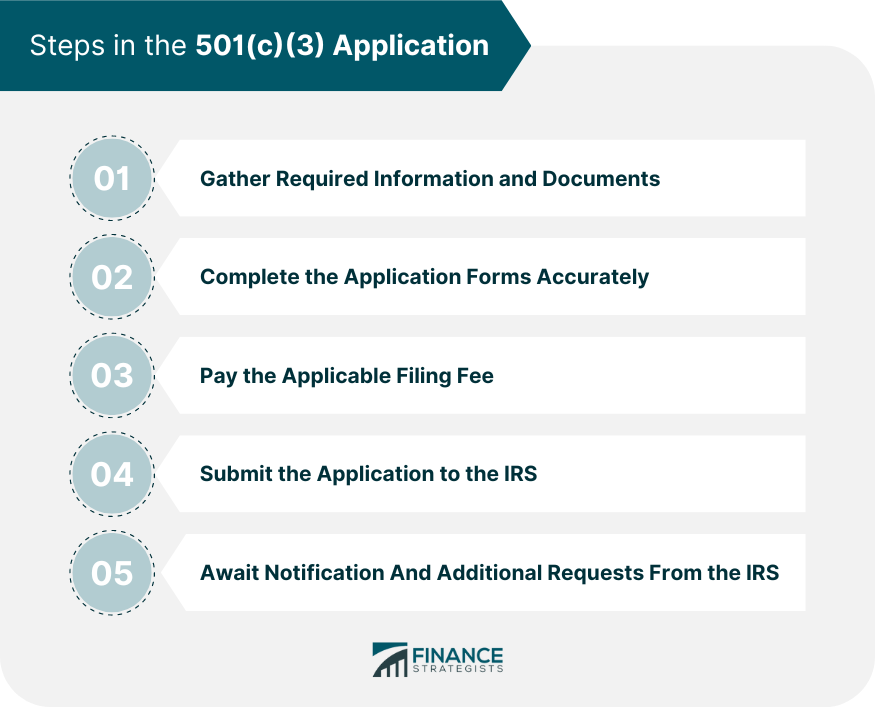A 501(c)(3) is a type of nonprofit organization that is exempt from federal income tax. These organizations are organized and operated exclusively for religious, charitable, scientific, literary, or educational purposes, or to foster national or international amateur sports competitions, or for the prevention of cruelty to children or animals. 501(c)(3) organizations are eligible to receive tax-deductible contributions, and they are also eligible to receive grants from government and private foundations. These organizations play an important role in society, providing essential services to communities and helping to improve the lives of millions of people. To qualify as a 501(c)(3) organization, an organization must meet certain requirements, including the following: The organization must be organized and operated exclusively for exempt purposes. The organization's net earnings may not inure to the benefit of any private shareholder or individual. The organization may not engage in political campaign activity or lobbying. Organizations that meet these requirements can apply for tax-exempt status with the Internal Revenue Service. Once an organization is granted tax-exempt status, it will be assigned a 501(c)(3) identification number. 501(c)(3) organizations are an important part of the American landscape, and they play a vital role in our communities. These organizations provide essential services to millions of people, and they help to make our society a better place. The standard processing time for a 501(c)(3) application is usually between 3 and 12 months. This period begins from the moment the IRS receives the complete application. It's important to note that the actual processing time might differ based on the specific circumstances of each application. Some applications might need additional time due to their complexity or because they require additional information. Therefore, it's advisable for organizations to plan their activities with the expectation of a lengthy approval process. To hasten the application process, the IRS offers Form 1023-EZ, a streamlined application for 501(c)(3) status. This form is applicable to smaller organizations with gross receipts of $50,000 or less and assets of $250,000 or less. Utilizing this form can significantly reduce the processing time to a few weeks instead of several months. However, organizations must exercise caution when opting for this expedited method. Form 1023-EZ is less detailed, and if an organization fails to meet the requirements, it risks losing its tax-exempt status in the future. Another expedited processing option is available specifically for disaster relief organizations. In times of crisis, these organizations can seek expedited processing from the IRS to swiftly deliver aid and support. Upon approval, their applications receive priority, resulting in a reduced timeframe for approval. One of the crucial factors impacting the processing time of a 501(c)(3) application is the complexity of the organization. More complex organizations, such as hospitals and universities, may take longer to review due to their extensive operations and numerous financial transactions. Similarly, organizations with unusual or unique structures, or those operating in a niche area of charity law, may also require more in-depth review and consequently a longer processing time. It's crucial for such organizations to provide detailed and accurate information in their applications to aid the IRS's review process. An application that is incomplete, unclear, or contains errors is likely to lead to delays, as the IRS will need to return the application or request additional information. By ensuring that the application is complete and well-detailed, organizations can avoid such unnecessary delays. This includes providing clear descriptions of activities, accurate financial information, and all the required supporting documents. During peak periods or times of staffing shortages, the IRS may take longer to review applications. While these factors are outside the control of applicants, understanding that external factors can influence the timeline helps in planning and managing expectations. When new regulations or procedures are introduced, there might be a learning curve for both the IRS staff and applicants, potentially leading to longer processing times. However, these changes are typically aimed at improving the process and ensuring that the tax laws are administered fairly and accurately. Organizations can stay updated with IRS announcements or consult with tax professionals to navigate through such changes. The first step towards filing a 501(c)(3) application is to gather all necessary information and documents. This includes, but is not limited to, the organization's articles of incorporation, bylaws, conflict of interest policy, financial statements, and a detailed description of the organization's activities. Collecting this information beforehand ensures that the application is filled out accurately and comprehensively, reducing the chances of delays or requests for additional information. Once all necessary information is gathered, the next step is to accurately complete the application forms. For most organizations, this will involve completing Form 1023, Application for Recognition of Exemption Under Section 501(c)(3) of the Internal Revenue Code. Smaller organizations may be eligible to complete the simplified Form 1023-EZ. Accuracy and thoroughness are crucial in this step. A well-completed application reduces the chances of the IRS needing to request further information or clarification, which could delay the application. After the application forms are completed, the organization must pay the appropriate filing fee. This fee varies based on the type of form being filed and the size of the organization. It's important to note that the fee must be paid at the time of filing and is generally non-refundable. The next step is to submit the application to the IRS. This should be done through the appropriate channels, as directed by the IRS. Upon receipt of the application, the IRS will send a confirmation that they have received it, marking the beginning of the processing period. After the application is submitted, the organization must wait for a notification from the IRS. During this time, the IRS may request additional information or clarification. Organizations should respond to these requests promptly and thoroughly to avoid unnecessary delays. One of the best ways to expedite the application process is to thoroughly review all application materials before submission. This involves checking for completeness, accuracy, and clarity. By doing so, the chances of the IRS needing to return the application or request additional information are significantly reduced. Navigating the 501(c)(3) application process can be challenging, especially for complex organizations or those unfamiliar with tax laws and IRS procedures. In such cases, seeking assistance from professionals such as tax attorneys or certified public accountants (CPAs) may be beneficial. These professionals can help ensure that the application is filled out accurately and thoroughly, improving the chances of a smoother, quicker approval process. After the application is submitted, it's a good practice to follow up with the IRS. This allows the organization to confirm that the application has been received and is being processed. Moreover, it shows the IRS that the organization is proactive and eager to cooperate, which could potentially expedite the process. If eligible, organizations can utilize expedited processing options, such as the Form 1023-EZ or expedited handling for disaster relief organizations. These options can significantly reduce the processing time. However, it's crucial to ensure that the organization meets all the eligibility requirements before opting for these methods. Applying for a 501(c)(3) status is a significant undertaking that requires meticulous planning and execution. The processing time for a 501(c)(3) application can range from a few weeks for an expedited process to several months for regular processing. This can also depend on factors such as the complexity of the organization, the accuracy and completeness of the application, the IRS workload and staffing, and changes in IRS procedures or regulations. However, there are several steps organizations can take to expedite the application process. These include thoroughly reviewing application materials before submission, seeking professional assistance if needed, following up with the IRS after submission, and utilizing expedited processing options if eligible.What Is a 501(c)(3)?
How To Qualify for 501(c)(3)
Processing Timeframes for 501(c)(3) Applications
Regular Processing Time
Form 1023-EZ Expedited Processing
Expedited Handling for Disaster Relief Organizations

Factors Affecting the Processing Time
Complexity of the Organization
Completeness and Accuracy of the Application
IRS Workload and Staffing
Changes in IRS Procedures or Regulations

Steps in the 501(c)(3) Application
Gather Required Information and Documents
Complete the Application Forms Accurately
Pay the Applicable Filing Fee
Submit the Application to the IRS
Await Notification and Additional Requests From the IRS

Tips to Expedite the Application Process
Thoroughly Review Application Materials Before Submission
Seek Professional Assistance, If Needed
Follow Up With the IRS After Submitting the Application
Utilize Expedited Processing Options, If Applicable
Final Thoughts
How Long Does a 501(c)(3) Application Take? FAQs
A 501(c)(3) organization is a non-profit entity recognized by the Internal Revenue Service (IRS) as tax-exempt under Section 501(c)(3) of the United States Internal Revenue Code. The classification includes charities, research institutes, educational entities, and religious organizations.
The processing time for a 501(c)(3) application can range from 3 to 12 months on average. However, expedited processing options are available for eligible entities, which can significantly shorten this timeline.
The processing time can be affected by factors such as the complexity of the organization, the completeness and accuracy of the application, the IRS's workload and staffing, and changes in IRS procedures or regulations.
Organizations can expedite the application process by thoroughly reviewing application materials before submission, seeking professional assistance if needed, following up with the IRS after submission, and utilizing expedited processing options if eligible.
Once an organization receives a 501(c)(3) status, it becomes exempt from federal income tax. Moreover, it can enhance the organization's credibility, making it more appealing to potential donors, who can enjoy tax deductions for their donations.
True Tamplin is a published author, public speaker, CEO of UpDigital, and founder of Finance Strategists.
True is a Certified Educator in Personal Finance (CEPF®), author of The Handy Financial Ratios Guide, a member of the Society for Advancing Business Editing and Writing, contributes to his financial education site, Finance Strategists, and has spoken to various financial communities such as the CFA Institute, as well as university students like his Alma mater, Biola University, where he received a bachelor of science in business and data analytics.
To learn more about True, visit his personal website or view his author profiles on Amazon, Nasdaq and Forbes.











